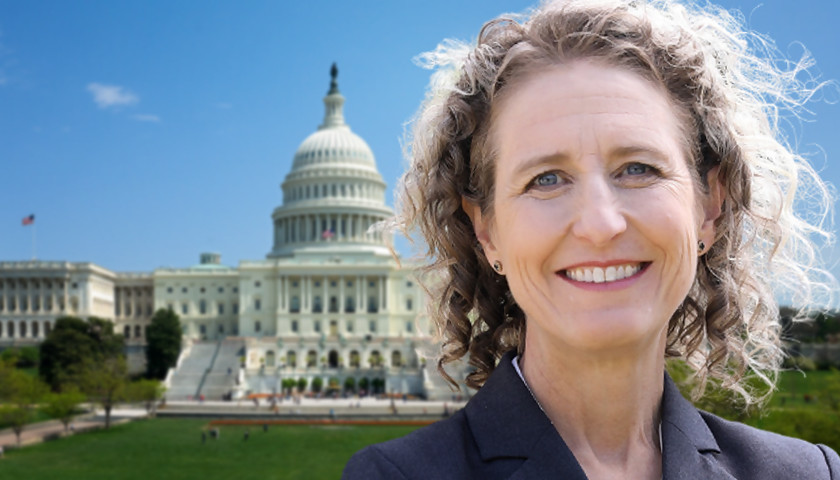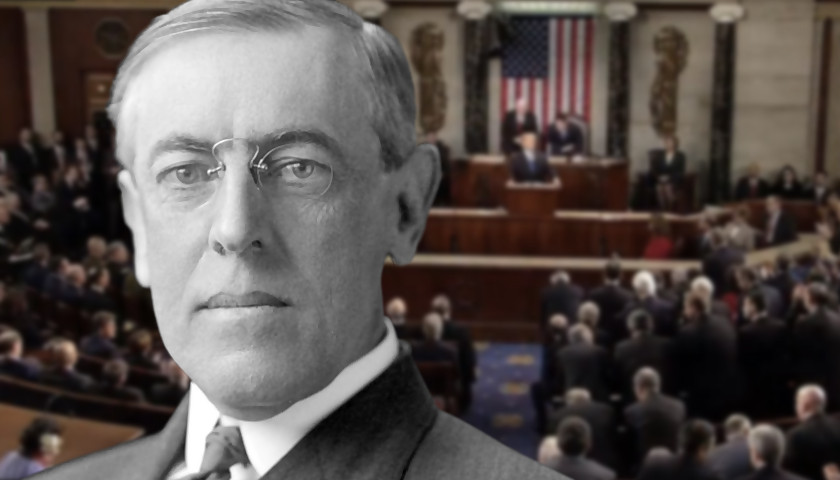by Theo Wold James Landis is widely credited with crafting the theoretical architecture supporting President Franklin D. Roosevelt’s radical reconstruction — and expansion — of the federal government. Landis shrewdly both established and legitimized the regulatory state, including Roosevelt’s creation of new federal administrative agencies, by offering the regulatory state as the solution to the problem of modern governance: the administrative state “is, in essence, our generation’s answer to the inadequacy of the judicial and legislative process.” The Landis premise took concrete shape through Roosevelt’s expansion of the regulatory state, and in doing so, it brought to fruition Woodrow Wilson’s progressive intellectual project: rule by experts, insulated from the popular will Landis (pictured above) believed the “the administrative process” for which he advocated would “spring from the inadequacy of a simply tripartite form of government to deal with modern problems” because modern problems were simply too large and complex to be entrusted to the system based on the separation of powers instituted by our nation’s founders. Landis framed this innovation as consistent with separation of powers principles because he believed the separation of powers called both for separation but also coordination among the branches, and he saw the administrative state as essential to creating that…
Read the full storyTag: President Franklin Delano Roosevelt
Newt Gingrich Commentary: Thanksgiving, an American Tradition
Thanksgiving means a lot more than turkey, cranberries, and pumpkin pie.
More than 401 years ago, courageous pilgrims set sail across the Atlantic Ocean on the Mayflower to start a new life in North America. They arrived at Plymouth on November 11, 1620, after a dangerous crossing and founded a new settlement where they could practice their faith freely.
Read the full storyCongressional Candidate Kiggans Signs Pledge to Support Term Limits Amendment
Senator Jen Kiggans (R-Virginia Beach) has signed a pledge to support a term limits Constitutional amendment if she is elected to Congress. The proposed amendment would limit U.S. representatives to three terms, and U.S. Senators to two terms. Of Virginia’s current federal legislators, only Congressman Bob Good (R-Virginia-05) has signed the pledge. Good is also a cosponsor of HJR 12 in the current Congressional session.
“Term limits on elected officials will help guarantee the will of the people, not special interests or career politicians, are being heard,” Kiggans said in a press release.
Read the full storyFear Drives Record Gun Sales
Virginia is setting records for gun sales this year; already the FBI has processed 617,472 firearms background checks, beating 2019’s total of 512,766.
Bob Marcus owns Bob’s Guns in Norfolk. He said the increase in sales began a year ago. “We saw it after the General Assembly turned over back in November. It started with the election, and then the General Assembly went into session. And there were threats of the so-called assault weapons ban, and other restrictions, so it continued through January, February, and into March.”
Read the full storyGregory Watson Commentary: Woodrow Wilson Began the Modern Tradition of Personally Delivering the SOTU Address to Congress in Order to Sell His Progressive Agenda to the Country
Among the many duties of the President of the United States is one that is found in Article II, Section 3 of the U.S. Constitution: “He shall from time to time give to the Congress Information of the State of the Union, and recommend to their Consideration such Measures as he shall judge necessary and expedient….” The Constitution does not specify in what manner the President is expected to furnish such “information” nor does it even suggest any certain season of the year — or any particular interval of time — that such “information” be provided. And, if conveyed verbally, the Constitution is silent as to from what physical location the President should perform this function. Commonly referred to as the “State-of-the-Union” address, as President Franklin Delano Roosevelt dubbed it in 1934, President George Washington, the first man to occupy the high office of President of the United States, delivered the initial such regular, annual message before a joint session of Congress on January 8, 1790. President Thomas Jefferson, our country’s third President, decided it better instead to send his remarks in written form to then be read to the membership by high-ranking Congressional employees. Jefferson’s idea held for more…
Read the full story




